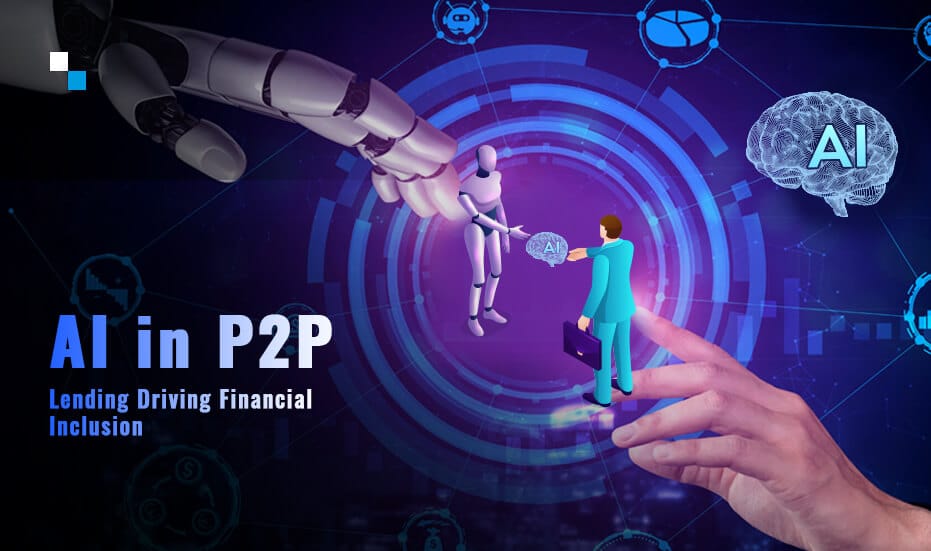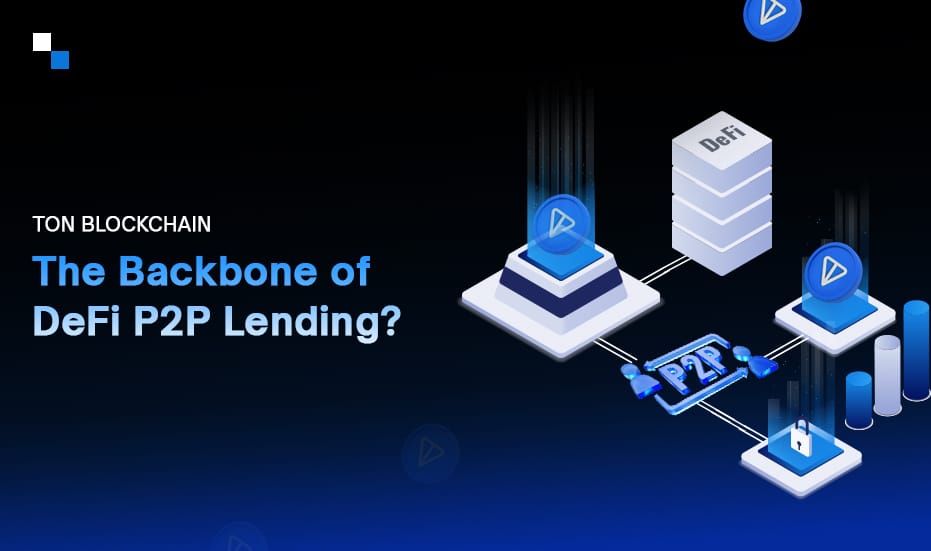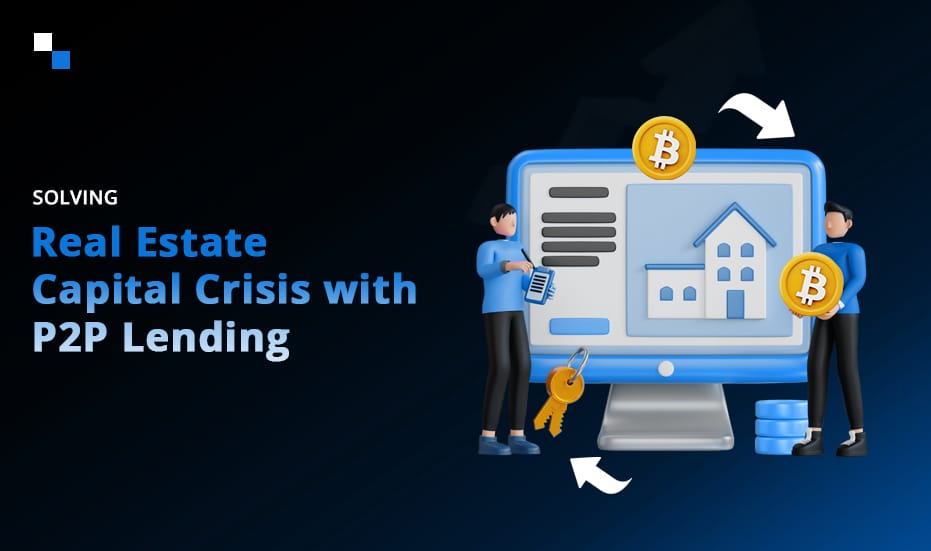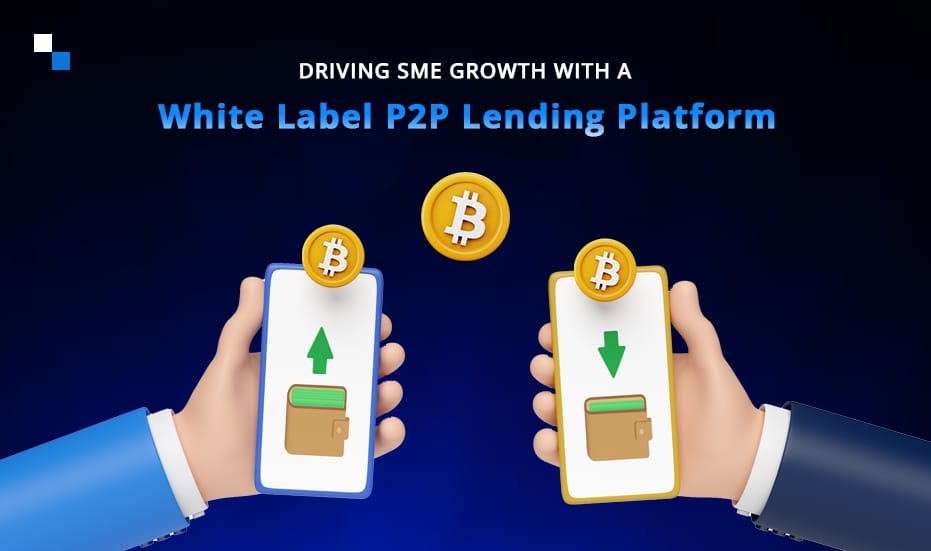Peer-to-peer (P2P) lending, also known as social lending or marketplace lending, is a form of lending that connects individuals or businesses seeking loans directly with potential lenders through an online platform. This decentralized approach to lending has been further revolutionized by the integration of artificial intelligence (AI) technologies.
AI is transforming the white-label P2P lending platform by enhancing credit scoring, automating loan approvals, detecting fraud, personalizing loan recommendations, optimizing collections, and improving marketplace efficiency. In this blog, we will explore the real-world implications of AI in P2P lending, highlighting its impact on borrowers, lenders, and the overall financial ecosystem.
- Enhanced Credit Scoring and Risk Assessment
AI algorithms have the capability to analyze massive amounts of data, including financial records, credit history, and alternative data sources such as social media activity, to assess borrowers’ creditworthiness. Traditional credit scoring models often fall short in capturing the full picture of an individual’s financial health. However, AI algorithms can identify hidden patterns and trends, enabling more accurate credit scoring and risk assessment. By considering a broader range of factors, AI helps lenders make informed decisions, reduces the risk of default, and expands access to credit for underserved individuals. - Automated Loan Underwriting
AI-powered underwriting systems have streamlined the loan application and approval process in P2P Lending Platform Software. Traditionally, loan underwriting involves manual review and analysis, which can be time-consuming and resource-intensive. AI algorithms automate this process by rapidly analyzing borrower information, including income, employment history, and credit records. By leveraging machine learning techniques, these algorithms learn from historical data to make lending decisions quickly and efficiently. This automation accelerates the loan approval process, improving the overall borrower experience and increasing efficiency for lenders. - Fraud Detection and Prevention
Fraudulent activities pose a significant risk in lending, and P2P lending platforms are not immune to this threat. AI plays a vital role in detecting and preventing fraud in P2P lending transactions. AI algorithms can analyze vast amounts of data, including transactional patterns, user behavior, device information, and IP addresses, to identify suspicious activities. By continuously monitoring and learning from new data, AI algorithms can detect fraudulent behavior and alert platform operators. This proactive approach helps safeguard lenders and borrowers from potential financial losses and protects the integrity of the lending platform. - Personalized Loan Recommendations
AI-powered systems have the ability to provide borrowers with personalized loan recommendations tailored to their specific financial needs. By analyzing various data points, such as income, spending habits, credit history, and financial goals, AI algorithms can suggest loan products that align with the borrower’s requirements and financial capabilities. This personalized approach improves the borrowing experience, as borrowers receive tailored recommendations that suit their unique circumstances. It also enhances financial literacy by guiding borrowers towards suitable loan options and fostering responsible borrowing practices.Launch your White Label P2P Lending Platform
Schedule Free Demo - Automated Collections and Recovery
AI can significantly optimize the collections and recovery process for White Label P2P Lending Platform. By analyzing borrower payment behavior, transactional patterns, and historical data, AI algorithms can identify early signs of potential default. This allows lenders to take proactive measures, such as sending reminders, offering repayment assistance, or negotiating alternative payment plans. By automating these processes, AI reduces the need for manual intervention, lowers operational costs, and increases the chances of successful loan recovery. This benefits both lenders, who can mitigate losses, and borrowers, who receive support in managing their repayments. - Marketplace Efficiency and Matching
AI algorithms improve the efficiency of P2P lending marketplaces by optimizing the matching process between lenders and borrowers. By considering borrower preferences, risk profiles, lender criteria, and other relevant factors, AI systems can facilitate more accurate and efficient loan matching. This optimization increases liquidity within the platform, ensuring that borrowers can access funding more readily and lenders can find suitable investment opportunities. The result is a more vibrant and active marketplace, benefitting all participants involved.
Use Cases
Here are some real-life examples of how AI helps in P2P lending:
- LendingClub: LendingClub is a leading P2P lending platform that uses AI to assess the risk of loans defaulting. The company’s AI-powered risk assessment model analyzes a wide range of factors, such as the borrower’s financial history, employment status, and credit score. This helps lenders to make more informed decisions about whether or not to grant a loan and what interest rate to charge.
- Prosper: Prosper is another leading P2P lending platform that uses AI to improve the loan origination process. The company’s AI-powered loan origination system automatically collects and verifies borrower information, and it also uses natural language processing to extract insights from borrowers’ social media posts. This helps to reduce the time and cost of processing loans, and it also improves the accuracy of loan decisions.
- Upstart: Upstart is a P2P lending platform software that uses AI to assess the creditworthiness of borrowers. The company’s AI-powered credit scoring model takes into account a wider range of factors than traditional credit scoring models, such as borrowers’ education, employment history, and online spending habits. This helps to provide lenders with a more accurate assessment of a borrower’s creditworthiness and make it more likely that loans will be granted to borrowers who are capable of repaying them.
- KreditBee: KreditBee is a P2P lending platform in India that uses AI to detect fraudulent loan activity. The company’s AI-powered fraud detection system analyzes large amounts of data quickly and accurately, allowing lenders to identify patterns that may indicate fraud. For example, AI can be used to identify borrowers who are using stolen identities or who have a history of defaulting on loans. This helps to protect lenders from financial losses and ensure that loans are only granted to borrowers who are likely to repay them.
Conclusion
Artificial intelligence is transforming the landscape of P2P lending, revolutionizing the way borrowers access to credit and lenders assess risk. By leveraging AI technologies, P2P lending platforms can offer faster, more accurate, and more inclusive lending experiences. The integration of AI in P2P lending contributes to financial inclusion by expanding access to credit, reducing discrimination, and fostering a more equitable financial ecosystem. As AI continues to advance, we can expect further transformative effects on P2P lending, unlocking new opportunities and empowering individuals worldwide.
Are you looking to develop the best P2P Lending Platform? Get in touch with subject matter experts at Antier.





